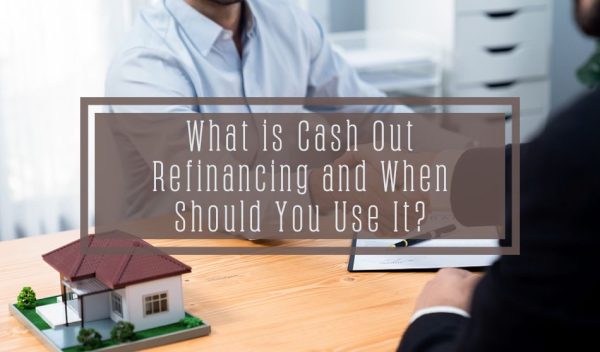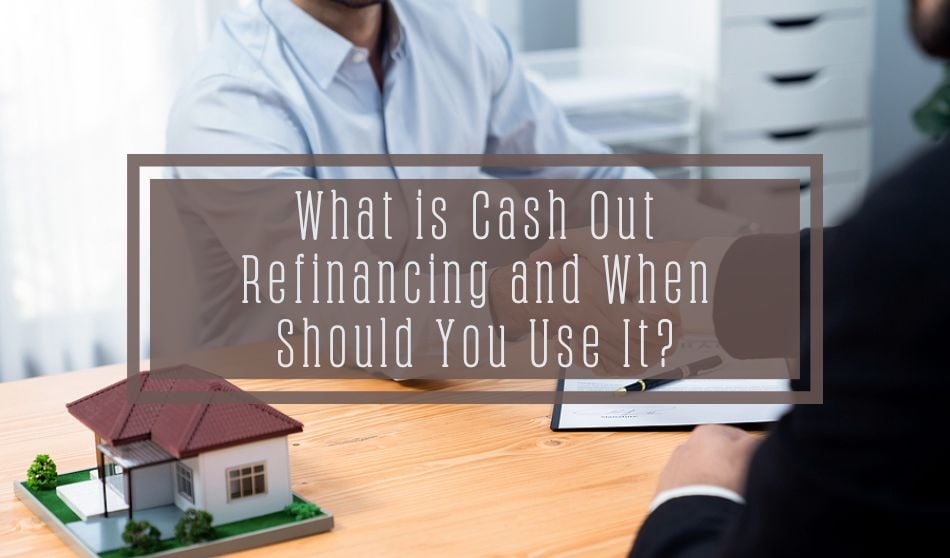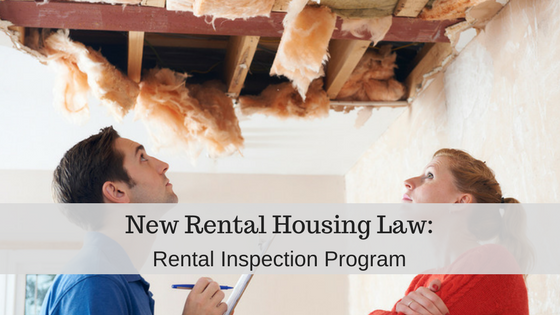
When you ask homebuyers in 2023 about their homeowning experience, one concern you’ll hear again and again is about how, exactly, they can utilize their home equity.
After all, those who are lucky enough to own homes that are appreciating are constantly told that they’re living the American dream of homeownership by passively building wealth — but they may not feel wealthy. They have to make their mortgage payments every month, and while it’s nice to know you’re building up home equity, you can’t pay your utility bills with home equity.
Or can you? There are a few ways to convert your home equity into cold, hard cash. One of the most popular is the cash-out refinance. Whether you want to use your funds to pay debts, invest back into your home, or even purchase an investment property to rent out, here is what you should know about a cash-out refinance.
What is a cash-out refinance?
A cash-out refinance is when you replace your present mortgage with another, larger mortgage, and “cash out” the difference between the two. That difference is your home equity — a cash-out refinance refinances you into a new mortgage and converts your home equity into cash.
Your new mortgage will be the sum of the amount of cash you withdrew, plus the remaining balance on your original mortgage.
Since you’re originating a whole new loan, keep in mind that you’ll have to pay closing costs again, just as you did with your original mortgage.
For most mortgage lenders, the requirements for a cash-out refinance are generally:
- A credit score of at least 620
- A debt-to-income ratio of 43% or better on the new loan
- At least 20% equity in your home, post-refinance
When should you use a cash-out refinance?
There are several good reasons to use a cash-out refinance, but it’s not a universally good idea for all homeowners. Let’s touch on when you should (and shouldn’t) use a cash-out refinancing.
When You Need The Cash
We’ll start with the most obvious scenario. Let’s say you bought your house a decade ago and did everything right. You researched neighborhoods, got an experienced real estate agent, timed the market perfectly, and scored a great home that’s risen sharply in value. You’ve built up quite a bit of home equity, which is real wealth — on paper. But you can’t buy a car, or pay your kid’s tuition, with home equity.
The cash-out refinance neatly converts your home equity into cash, and you get that cash at a much lower interest rate than if you’d used credit cards or gotten a personal loan. Depending on the value of your home and how much equity you’ve built up, you can probably get a lot more money than if you went with one of those other options.
When You Can Get A Lower Interest Rate
If rates were very high (as they are right now) when you bought your home and they’ve fallen since, a cash-out refinance can secure you a much more favorable interest rate. While cash-out refinance rates are generally higher than those of conventional refinances (i.e. rate or term refinances), they can still be lower than your existing loan.
If you don’t have a pressing need for cash but still want to refinance for a lower interest rate, you should probably pursue a straightforward rate or term refinance. If you aren’t sure which route is best for you, ask your mortgage lender.
When You Want To Keep Things Simple
One way to convert your home equity to cash is to get a second mortgage. The drawbacks to that are probably obvious: you now have two mortgages, two monthly payments, two sets of paperwork, etc. Second mortgages almost always come with higher interest rates than a cash-out refinance, too.
If you opt for a cash-out refinance instead, you’ll still only have a single loan payment to make every month.
When You’re Cleaning Up Your Debt
If you’re one of the tens of millions of Americans who have credit card debt, or other high-interest debt, you may, at some point, undertake a consolidation of your debt. One popular way to do this is to pay off your highest interest debts first — usually your credit card debt, which at the time of this publication, has an average interest rate topping 20%.
In this scenario, using a cash-out refinance to pay off high-interest debt makes a lot of sense. The interest rate you’ll pay on your new loan will be much less than the interest rate on your credit card, and paying off that debt could very well improve your credit score.
When You Need Money For Home Renovations
Using funds from a cash-out refinance for home renovations gets you a bonus. Not only do you get cash in hand to remodel the bathroom or put in a swimming pool, but those improvements also boost your home’s equity back up. And there’s a bonus. As long as you use the money for permanent improvements to your home (as opposed to routine maintenance or something like painting), you can deduct the interest on your taxes.
Just keep in mind that if you use the cash from your cash-out refinance on something other than home improvement, you can’t deduct the interest from your taxes. As always, consult a tax professional if you have any questions.
You’ve Ruled Out Other Similar Options
As we touched on above, getting a second mortgage is one alternative way to convert your home equity into cash. But if you’re on the fence about a refinance, there are other options, too.
A home equity loan is very similar to a cash-out refinance except that you’re not refinancing — you’ll keep the loan you have now, with its rate and terms intact. The home equity loan will let you borrow an amount equal to around 80% of your home’s value, minus your outstanding mortgage balance.
On the other hand, a home equity line of credit (HELOC) is exactly what it sounds like — a line of credit that draws on your equity. If you don’t know exactly how much you’ll need, or you might need a little here and there, a HELOC lets you draw as much or as little as you need, whenever you need it. And if you end up never needing to draw on it, it costs you nothing.






